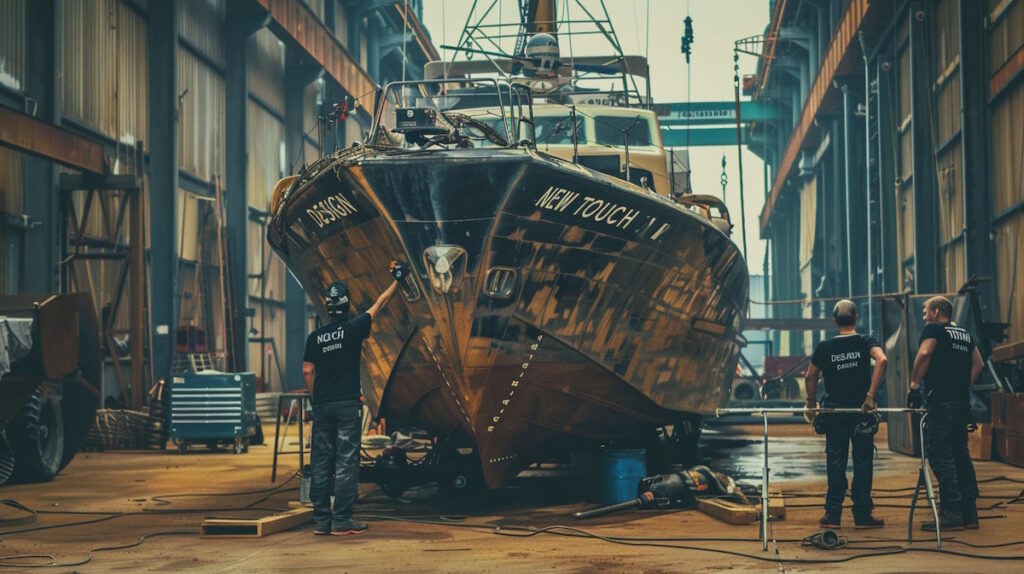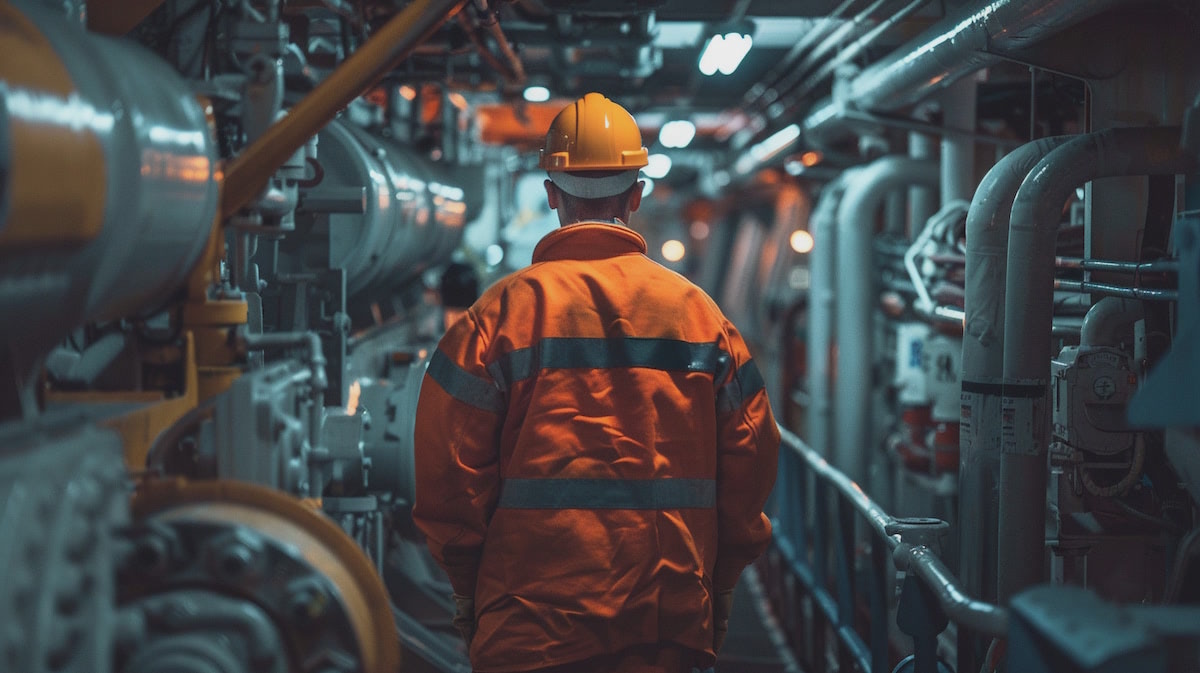Boats are a big investment for people who use them for fun or transportation. Just like any other valuable asset, boats require regular maintenance to keep them in top condition. Preventative maintenance is crucial for boat owners as it can save them time and money in the long run. To keep boats safe and enjoyable, owners should take action to prevent damage and solve issues early on.
Key Takeaways
- Preventative maintenance is crucial for keeping your boat in top condition and avoiding costly repairs.
- Regular cleaning and inspection can help identify potential issues before they become major problems.
- Proper engine maintenance, including regular oil changes and tune-ups, can keep your boat’s engine running smoothly.
- Regular fuel system maintenance, such as changing filters and using quality fuel, can prevent costly repairs and engine damage.
- Electrical system maintenance, including checking connections and replacing worn wiring, can prevent electrical failures and potential safety hazards.
Regular Cleaning and Inspection: Keeping Your Boat in Top Condition
Regular cleaning and inspection are essential for keeping your boat in top condition. Boats can gather dirt, grime, and saltwater residue over time, causing corrosion and damage if not cleaned regularly. By regularly cleaning your boat, you can remove these contaminants and prevent them from causing long-term harm.
In addition to cleaning, regular inspection is crucial for identifying any potential issues before they become major problems. When inspecting your boat, look for leaks, cracks, or any signs of damage on the hull, deck, and other parts. Make sure to check the cleats and railings to see if they are secure and working well.
Engine Maintenance: Tips for Keeping Your Boat’s Engine Running Smoothly
The engine is the heart of your boat and requires regular maintenance to keep it running smoothly. One of the most important aspects of engine maintenance is changing the oil regularly. Oil lubricates the engine’s moving parts and helps prevent friction and wear. By changing the oil at recommended intervals, you can extend the life of your engine and prevent costly repairs.
In addition to oil changes, it is important to check the belts and hoses on your boat’s engine regularly. Belts can become worn or loose over time, which can lead to engine failure. Hoses can also deteriorate and develop leaks, which can cause overheating and other issues. By inspecting and replacing belts and hoses as needed, you can prevent these problems from occurring.
Fuel System Maintenance: How to Avoid Costly Repairs
The fuel system is a critical component of your boat and requires regular maintenance to avoid costly repairs. One of the most important aspects of fuel system maintenance is checking for leaks. Fuel leaks can be dangerous and can lead to fires or explosions. By regularly inspecting the fuel lines, connections, and fittings, you can identify and address any leaks before they become a major problem.
Another important aspect of fuel system maintenance is changing the fuel filter regularly. The fuel filter helps remove impurities from the fuel before it reaches the engine. Over time, the filter can become clogged with debris, which can restrict fuel flow and cause engine performance issues. By changing the fuel filter at recommended intervals, you can ensure that your engine receives clean fuel and operates at its best.
Electrical System Maintenance: Preventing Electrical Failures on Your Boat
The electrical system is essential for powering your boat’s lights, electronics, and other systems. Regular maintenance of the electrical system is crucial for preventing electrical failures and ensuring that your boat’s systems operate properly.
One important aspect of electrical system maintenance is checking the battery regularly. The battery is responsible for providing power to the electrical systems on your boat. By checking the battery’s water level, cleaning the terminals, and ensuring proper connections, you can extend the life of your battery and prevent unexpected power failures.
It is also important to inspect the wiring on your boat regularly. Over time, wiring can become corroded or damaged, which can lead to electrical failures or even fires. By inspecting the wiring and addressing any issues promptly, you can prevent these problems from occurring.
Propeller Maintenance: Tips for Maintaining Your Boat’s Propeller

The propeller is responsible for propelling your boat through the water and requires regular maintenance to ensure optimal performance. One important aspect of propeller maintenance is checking for damage. Propellers can become bent or dented, which can affect their efficiency and cause vibrations. By inspecting the propeller regularly and addressing any damage, you can ensure that your boat operates smoothly and efficiently.
Cleaning the propeller is also important for maintaining its performance. Over time, marine growth, such as algae or barnacles, can accumulate on the propeller blades, which can reduce their effectiveness. By cleaning the propeller regularly, you can remove this marine growth and ensure that your boat maintains its speed and maneuverability.
Hull Maintenance: Protecting Your Boat from Damage and Corrosion
The hull is the outer shell of your boat and requires regular maintenance to prevent damage and corrosion. One important aspect of hull maintenance is cleaning. Over time, dirt, grime, and saltwater residue can accumulate on the hull, which can lead to corrosion and damage if not properly addressed. By regularly cleaning the hull, you can remove these contaminants and prevent them from causing long-term harm.
Applying protective coatings to the hull is also important for preventing damage and corrosion. There are various types of protective coatings available, such as antifouling paint or gel coat protectants, which can help protect the hull from marine growth, UV rays, and other environmental factors. By applying these coatings regularly, you can extend the life of your boat’s hull and maintain its appearance.
Cooling System Maintenance: Preventing Overheating and Damage to Your Boat’s Engine
The cooling system is responsible for regulating the temperature of your boat’s engine and requires regular maintenance to prevent overheating and damage. One important aspect of cooling system maintenance is checking the coolant level regularly. The coolant helps dissipate heat from the engine and prevents it from overheating. By checking the coolant level and adding more as needed, you can ensure that your engine stays cool and operates at its best.
Cleaning the heat exchanger is also important for maintaining the cooling system. Over time, the heat exchanger can become clogged with debris, which can restrict coolant flow and cause overheating. By cleaning the heat exchanger regularly, you can remove this debris and ensure that your engine stays cool.
Battery Maintenance: Tips for Keeping Your Boat’s Battery in Good Condition
The battery is essential for powering your boat’s electrical systems and requires regular maintenance to ensure optimal performance. One important aspect of battery maintenance is checking the water level regularly. Some batteries require distilled water to function properly, and the water level can decrease over time due to evaporation. By checking the water level and adding more as needed, you can extend the life of your battery and prevent unexpected power failures.
Cleaning the battery terminals is also important for maintaining good electrical connections. Over time, corrosion can accumulate on the terminals, which can affect the battery’s performance. By cleaning the terminals regularly with a mixture of baking soda and water, you can remove this corrosion and ensure that your battery operates at its best.
The Benefits of Preventative Maintenance for Boat Owners
In conclusion, regular preventative maintenance is crucial for boat owners as it can save them time and money in the long run. By following these tips for cleaning and inspecting your boat, maintaining your boat’s engine, fuel system, electrical system, propeller, hull, cooling system, and battery, boat owners can keep their vessels in top condition and avoid costly repairs. Taking proactive measures to prevent damage and address potential issues before they become major problems will ensure that your boat remains safe, reliable, and enjoyable to use for years to come.
If you’re a boat owner looking to minimize the need for repairs and keep your vessel in top shape, you’ll want to check out this article on preventative maintenance tips from expert mobile marine mechanics. These seasoned professionals share their insights and advice on the best practices for maintaining your boat and avoiding costly repairs. From regular engine maintenance to proper cleaning and storage techniques, these tips will help you keep your boat running smoothly for years to come. For more information on boat repairs, you can also check out this helpful article on how to repair cracked vinyl boat seats.
FAQs
What is preventative maintenance?
Preventative maintenance refers to the regular upkeep and inspection of a boat’s components to prevent potential issues from arising and to extend the lifespan of the vessel.
Why is preventative maintenance important for boat owners?
Preventative maintenance can help boat owners avoid costly repairs and breakdowns while ensuring the safety of passengers and crew. It also helps to maintain the value of the boat and prolong its lifespan.
What are some common preventative maintenance practices for boats?
Common preventative maintenance practices for boats include regular engine oil changes, checking and replacing filters, inspecting and cleaning the hull and propeller, checking and replacing belts and hoses, and inspecting and maintaining electrical systems.
How often should preventative maintenance be performed on a boat?
The frequency of preventative maintenance depends on the type of boat, its usage, and the manufacturer’s recommendations. However, it is generally recommended to perform preventative maintenance at least once a year or every 100 hours of use.
Can boat owners perform preventative maintenance themselves?
Yes, boat owners can perform some preventative maintenance tasks themselves, such as checking and replacing filters, inspecting and cleaning the hull and propeller, and checking and replacing belts and hoses. However, it is recommended to consult with a professional mobile marine mechanic for more complex tasks and to ensure proper maintenance practices are being followed.
What are the benefits of hiring a mobile marine mechanic for preventative maintenance?
Hiring a mobile marine mechanic for preventative maintenance ensures that the boat is being properly maintained by a trained professional. Mobile marine mechanics can also perform maintenance tasks on-site, saving boat owners time and money on transportation costs. Additionally, mobile marine mechanics can provide expert advice on preventative maintenance practices and identify potential issues before they become major problems.





